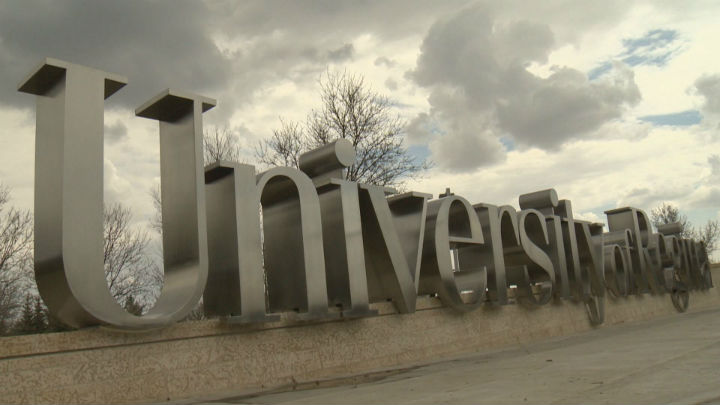Editor’s note – an earlier version of this article misidentified the described flu-like symptoms as “COVID-19” symptoms. The students have been tested for that disease, and the results are pending. Global News regrets the error.

Two University of Regina students are in quarantine after developing symptoms of flu-like symptoms, says a spokesperson for the university.
As a precaution, the university and the Saskatchewan Health Authority have made arrangements for the student residents to self-isolate.
Their symptoms are described as flu-like. Both students have been tested for COVID-19. The results are still pending.
“Self-isolation is not unusual as a number of people in the province have self-isolated as part of a routine response to reporting flu-like symptoms or potential exposure based on travel history,” said Paul Dederick, a spokesperson for the U of R.
“It’s critical that our campus community remains calm.”

Get weekly health news
The university is following directions from the Saskatchewan Health Authority and the Public Health Agency of Canada in all their containment and contingency planning.
“Our focus is on the health and safety of our students, faculty and staff as we work to limit exposure to, and transmission of, COVID-19,” said Dederick.
The university is reminding students to practice good hygiene and social distancing to reduce the risk of infection.
On Thursday, Saskatchewan confirmed its first presumptive case of COVID-19. The individual is in their 60s and recently travelled to Egypt.
Concerned about COVID-19? Here are some things you need to know:
Health officials say the risk is very low for Canadians, but they caution against travel to affected areas (a list can be found here). If you do travel to these places, they recommend you self-monitor to see whether you develop symptoms and if you do, to contact public health authorities.
Symptoms can include fever, cough and difficulty breathing – very similar to a cold or flu. Some people can develop a more severe illness. People most at risk of this include older adults and people with severe chronic medical conditions like heart, lung or kidney disease.
To prevent the virus from spreading, experts recommend frequent handwashing and coughing into your sleeve. And if you get sick, stay at home.
For full COVID-19 coverage from Global News, click here.














Comments